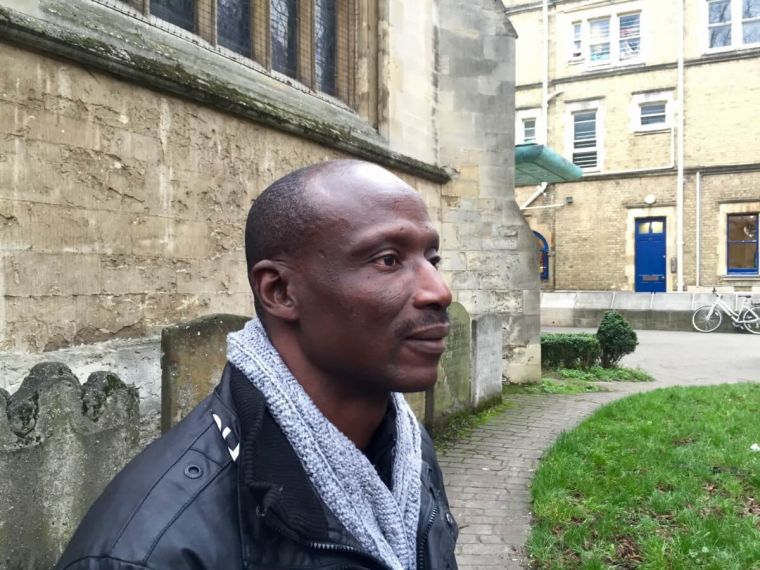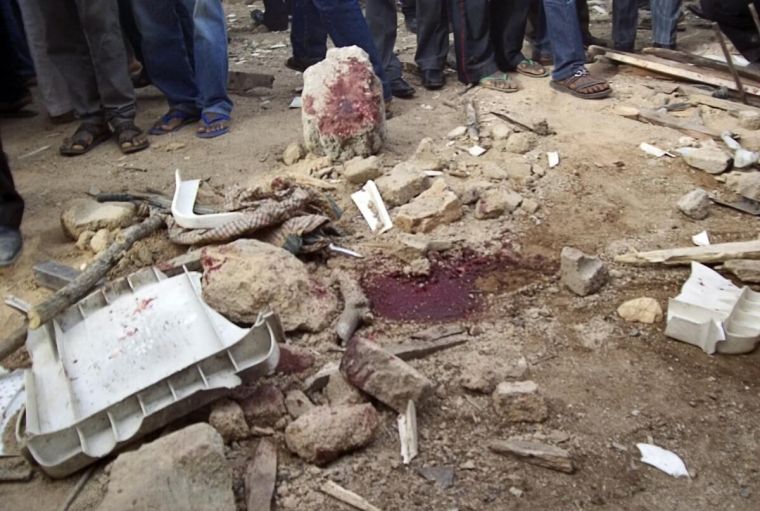Meet the Christian pastor with a £500 bounty on his head
Hassan John has a price on his head of 150,000 Nigerian naira. It sounds a lot but it is just £500. That is what his life is considered to be worth. As a Christian pastor in Jos he is regarded as an "infidel".

John, who is 52 but looks much younger, is currently in Oxford for a year studying apologetics at the Oxford Centre for Christian Apologetics. He is also on placement at Latimer Minster, the groundbreaking Christian missional church under leadership of Frog and Amy Orr-Ewing. In Jos, he goes out to work at his church each day never knowing if that is the day he will be murdered by some desperate Boko Haram follower looking to claim the paltry price on his head. The extremist Islamists want him dead, even though a substantial part of his week is spent working with Muslim women in the community, helping to educate them and to set up their own businesses.
In Oxford, he has time to breathe, to think about life and God, without living in the unending tension of violence, the breakdown of law and order, the chaos. He has time to reflect on what he has seen, his two young sisters who died of Aids, the terrible violence unleashed by the jihadist ISIL affiliate Boko Haram in north-east Nigeria, the blood, the bodies, witnessing friends shot dead or injured in front of his eyes and narrowly escaping death himself, about seeing the traumatised Chibok in the aftermath of the kidnap of the 276 girls. More than two million refugees have been created by the terror.
"One of the horrendous things I've seen is coming up this village one morning after we had been told the village has been attacked. To see the bodies lying there, women, children, men that have been killed overnight, blood everywhere. It was heartwrenching. You kind of ask yourself, what is the meaning of all this?"
It has not been just one incident. "You see it again and again and again. You get to places where a bomb has just exploded. Lots of people have been killed. There are bodies all over the place. You visit people in hospital. You go back and meet families, you cry with them, you console them, you do the best you can with them all the time."
He acknowledges there are many different explanations for what his happening, but he puts it down to a general collapse in relations between Christians and Muslims in Nigeria.
So this is where he is putting his energies, into trying to rebuild friendships between the faiths. It began with a small Muslim girl who could not go to school. Her father had been killed in the violence. He asked the Muslim community if he could pay her school fees, and after much debate, they agreed. This made him investigate other orphan children. "It is our responsibility as Christians to do something about this." He found about seven. Then 25. Then there were 40. Now there are about 160 Muslim children who are attending school, their fees paid by the Anglican diocese of Jos, led by the outstanding Anglican churchman in the area, Archbishop of Jos Ben Kwashi.

Then he decided that they could also help their mothers. They taught them how to knit, make soap and jewellery and other things they could sell at market. From 12 women, there are now more than 120 they are working with. Young Muslim men in the area are starting to ask if they can be helped as well.
"We have built it to a level where the Muslim and Christian women would come and sit together, they would cook and eat together. Now in Nigeria that is a big thing. You don't eat with your enemy because you are afraid that you will be poisoned. Now they interact, it is just so marvellous."
"God created the world. He created men and women. We are all his creation. There's nothing we can say or do that can change that." Therefore everyone must work together. "We must understand that ultimately, we are all going to come into the same place. In other words, like the Christian Bible says, this world will pass away. At the end of the age there will be judgement."
The difference is tangible. Two years ago, while in a church service, there were sirens and the anti-bomb squad descended. A member of the Muslim community told him they had heard a bomber was headed to the church, and had called the police. "This is a Muslim stopping an attack on a church in Jos. It's incredible. We've built this relationship and now we are beginning to work with one another and trust one another. We are protecting one another."
Hassan's father was a tribal prince but he died the year his son was born. His mother remarried and then left the family home when he was about ten. He worked his way through boarding school, as gardener and cleaner, because his stepfather could not pay the fees. But one main thing his stepfather did for him was insist Hassan went to church every week, even though he was not himself a churchgoer. He made friends, joined the choir and managed to get into Baptist High School thanks to church. From there he went to Jos university to study theatre and performing arts. He was in his third year by the time his mother understood he was not going to be a doctor, that "theatre" did not mean operating theatre. Corruption was endemic, and the country's infrastructure was collapsing as he graduated. He began teaching English in a state school and then auditioned successfully to do commercial voice overs for a radio station. From there he launched his own series of radio shows of motivational talks for business. By the time he was 30, he was helping young people set up and run small businesses. He married Hannatu and they have two daughters.
He also did some work with Archbishop Kwashi and was involved in the church. For a long time he ignored Kwashi and others who suggested he might have a vocation, but finally gave in after many prayers by Kwashi and his own wife. "I think there was a conspiracy," said Hassan. Three years at seminary followed, and he was priested in 2006. By this time relations between Muslims and Christians on the streets were deteriorating badly, with many rumours and counter-rumours about the two faiths, and misinformation breeding mistrust and fear. After more than 100 slain bodies were wrongly identified as Muslims killed by Christians, Hassan and the diocese began working to record on video as much of the violence as possible. He began working for CNN. He reported from Chibok for the network, filing dozens of reports from 2010, trying to ensure the world saw the true picture of the violence and the reasons behind it. Some of it is incredibly dangerous and requires enormous courage.
None of it has made him question his faith.
"Despite all the issues and challenges we have in Jos, there are incredible testimonies of how God is working. We can see how families, communities are being saved from the attacks. Again and again there are stories of miraculous saving." These stories of sitting through the tears of bereaved mothers as they find it in their hearts to forgive those who have murdered their sons. "People move closer to God because in Him they are able to continue life in spite of the crisis. They see God, they see him as real, they see him as powerful. There are those who ask questions, why is God allowing all this to happen. And there are those who see there is a purpose. We may not understand it now, but by and by, we will get to see."











